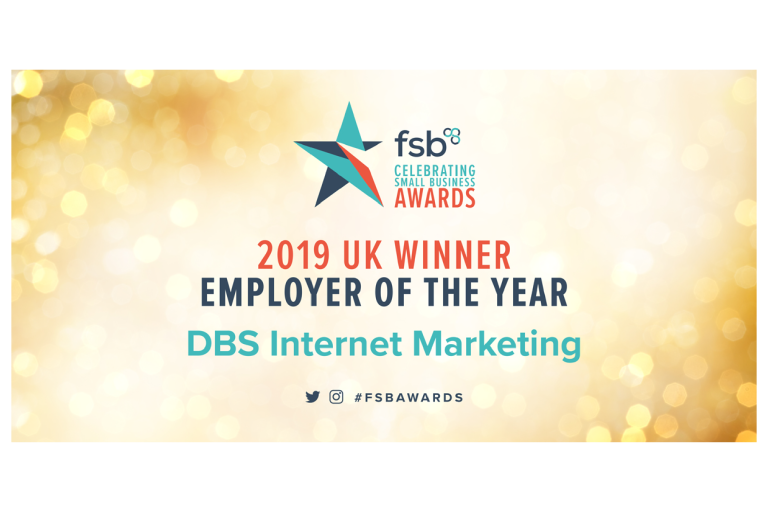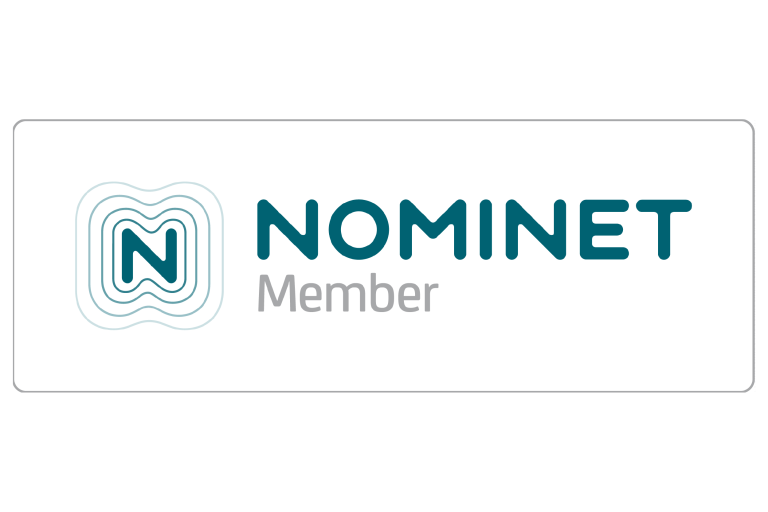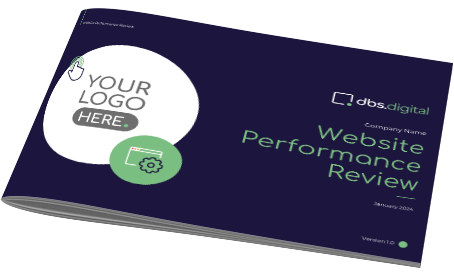The digital marketing landscape is evolving at breakneck speed. To remain competitive, businesses need to stay ahead of these changes, adapting their strategies to keep pace with new technologies and consumer behaviours. This blog takes a closer look at the digital marketing trends for 2025 set to dominate the industry landscape, providing insights on how businesses can harness these trends to drive growth and enhance customer engagement.
Embrace Artificial Intelligence in Marketing but Stay Human
We have to start with Artificial Intelligence (AI) as it continues to revolutionise digital marketing. From chatbots that provide instant customer service, to personalised recommendations that enhance customer purchasing experiences, AI is becoming an indispensable tool to use across almost all marketing channels. Predictive analytics, also powered by AI, allows businesses to anticipate customer needs and behaviours, tailoring marketing efforts accordingly. AI-driven marketing not only improves customer experience but also boosts marketing efficiency, delivering better outcomes. As we move towards 2025, leveraging AI in marketing strategies will be crucial for staying ahead of the competition. Those businesses that are wary to use AI or are not ready to harness its skills, may find themselves not reaping the possible benefits and falling behind competitors.
Some businesses may already think that AI has integrated into marketing a lot in recent years, but 2025 is looking to see AI becoming even more part of daily activities from campaign designs to customer service and content creation. As more and more people start to embrace the benefits, AI will inevitably become smarter and more efficient.
The things to be aware of with this trend is whilst businesses should embrace the skills and time saving qualities AI has to offer, they must use with caution and maintain their brand identity and humanness. Customers can be wary when they notice AI generated content or conversation so whilst using AI can streamline processes, such as using Chatbots, you have to ensure the information it is providing is accurate, in your brand tone of voice and resonates on a human level. A general rule of thumb is to use AI but think of them as an assistant rather than a replacement for humans.
Ways to successfully use AI
- Use AI as a tool to assist humans, not to replace them
- Let AI help streamline your processes, saving you time to concentrate on other, more creative roles
- Use AI to enhance personalised experiences across different touchpoints. AI can predict consumer behaviour and tailor interactions based on these findings which can help build strong customer relationships
- AI can help businesses make informed decisions based on real time data. It means you can help optimise campaigns and much more.
- AI and machine learning can play a crucial role in enhancing from setting goals to adjusting bids. Learn more about other PPC trends for 2025 in our article.
Ensure Privacy Remains A Priority
Privacy has been a top trend for several years, especially since the General Data Protection Regulation (GDPR) came into effect. Consumers are becoming more and more aware of the importance of privacy and becoming wary of how businesses are using their data. Therefore, if businesses are not treating privacy as a priority, they will potentially see the repercussions. Governments are continuing to tighten data privacy laws and cookie policies and brands need to keep up to date and comply with these changes- not only to stay within the law but to help your customers feel safe working with your brand and can lead to brand loyalty.
Customers will be willing to share their data if it is used to create a meaningful, tailored online experience and for brands that have built their trust. Therefore, ensure you use customer data to build genuine, personalised experiences and always be transparent and upfront with how their data will be used.
Working with a professional web company such as DBS Digital will help ensure your data privacy policies are up to date and always compliant.
Start using Video Content if you haven’t already
 Video content continues to gain prominence, and this trend is expected to continue to surge in 2025. Consumers prefer video content for its engaging and digestible nature. Platforms like YouTube and TikTok are leading this trend, offering diverse formats such as live streaming, short-form videos, and vlogs. For businesses, creating compelling video content requires understanding the preferences of their target audience and delivering authentic and entertaining videos. Engaging video content not only increases brand visibility but also fosters deeper connections with consumers.
Video content continues to gain prominence, and this trend is expected to continue to surge in 2025. Consumers prefer video content for its engaging and digestible nature. Platforms like YouTube and TikTok are leading this trend, offering diverse formats such as live streaming, short-form videos, and vlogs. For businesses, creating compelling video content requires understanding the preferences of their target audience and delivering authentic and entertaining videos. Engaging video content not only increases brand visibility but also fosters deeper connections with consumers.
Whilst video content is by no means a new trend, the way in which users are consuming content is subtly continuing to shift, and businesses need to be aware of this and tweak their existing video strategy where needed. Whilst short form content remains popular, longer form content is making a comeback. Some consumers are looking for content that is more meaningful and goes into more detail in topics that interest them. So don’t assume all your content needs to always be in bite sized pieces.
For 2025, shoppable video content is on the rise and looks to become even more popular. Use your videos as a way to build more of a connection with your audience and answer any questions they may have about your product or service. Behind the scenes content or live Q&A’s are great ways to do this.
Considerations for using video successfully
- Think about each piece of video content carefully. Can you create longer form content and then shorten it for more bite sized pieces for easy consumption
- If considering live Q&A’s, ensure you remain on brand at all times and let your brand personality shine
- Focus on quality rather than the quantity of videos you are producing. They need to be of high quality and truly reflect your brand.
- Use the interactive tools available to boost your video content even more such as polls to engage viewers.
- Make your video content as accessible as possible. Make sure you add audio descriptions and captions to reach more people and make the content easy to consume even without the user having to have the volume up.
Video is just one of the trends that is expected to take centre stage next year. Read more social media trends for 2025 to ensure your strategy is adjusted and ready to make the biggest impact.
Personalising the Customer Experience
In the age of information overload, personalised marketing is key to capturing consumer attention. By leveraging customer data, businesses can create tailored marketing messages that resonate with individual preferences and behaviours. This hyper-personalisation leads to improved customer loyalty and higher conversion rates. Techniques such as dynamic content, personalised email campaigns, and recommendation engines are becoming standard practice. As customer expectations continue to rise, delivering personalised experiences will be paramount for standing out in a crowded market.
Ways to personalise customer experience successfully:
- Consider your touchpoints carefully. For example, when creating a social media ad campaign, truly think about the best moments for your ads to show and pick the places and times that are more likely to resonate with your customers. People are bombarded with adverts constantly but are more likely to notice those that are being presented to them at the right time.
- Embrace AI to help with the personalised aspects or your marketing campaigns which will make your marketing efforts more efficient. For example, you can use AI tools to design user journeys that meet specific customer needs.
Sustainability and Ethical Marketing
Consumers are increasingly prioritising sustainability and ethical practices when making purchasing decisions and now have access to a lot more information about where the products they buy come from. Businesses need to integrate sustainable practices into their marketing strategies, whether through eco-friendly packaging, ethical sourcing and transparent supply chains. Authenticity and transparency are crucial; consumers are quick to detect and criticise greenwashing. By embracing sustainable and ethical marketing, businesses can build trust and loyalty among environmentally conscious consumers.
Even your web design practices should have sustainability in mind such as sustainable hosting and infrastructure. We discuss this more in our website design trends of 2025 article.
Whilst we have listed sustainability as a trend, it is something that cannot be ignored by brands. Consumers expect brands to be ethical and sustainable wherever possible and be open about their production, who they work with and the ways they are trying to reduce the negative impact they have on the environment.
Things to consider for sustainable marketing practices:
- Always be as open and honest as possible with consumers. They are savvy and want to know details about a brand’s sustainability and will want real evidence. If the results are not to their satisfaction, it could and probably will stop them buying.
- Don’t just use buzzwords like “green” or that you are “committed to reducing our environmental impact”. The customer now needs more proof so make sure you have the information to back it up and highlight it on your website
- If there is still room for improvement when it comes to the sustainability of your business- don’t shy away from this. Be honest with customers and say this is something you are working on and state what actions are taking place. Honesty will go a long way.
- Consider all aspects of sustainability from the packaging or your products to the actual production process and the supply chain. Also think about the social impact the company has. Sustainability now encompasses a huge range of things that brands need to think about.
Brands that truly have sustainability at the core of their brand and can genuinely resonate this with their users will be the ones that benefit from brand loyalty.
The Expansion of Augmented Reality (AR)
 Augmented Reality (AR) technology is gaining traction in digital marketing, offering interactive and immersive experiences. Brands are using AR to provide virtual try-ons, interactive product demos, and gamified experiences. Successful AR campaigns have shown significant boosts in engagement and customer satisfaction. As AR technology becomes more accessible, businesses can utilise it to create engaging and memorable customer experiences, differentiating themselves from competitors.
Augmented Reality (AR) technology is gaining traction in digital marketing, offering interactive and immersive experiences. Brands are using AR to provide virtual try-ons, interactive product demos, and gamified experiences. Successful AR campaigns have shown significant boosts in engagement and customer satisfaction. As AR technology becomes more accessible, businesses can utilise it to create engaging and memorable customer experiences, differentiating themselves from competitors.
In 2025 and beyond AR and Virtual Reality (VR) will no longer be contained to the gaming industry and will be more and more common place in a range of industries such as retail. So, what used to not seem relevant to a lot of brands, may not be the case anymore. There are brands that are already embracing this technology such as several retail brands that allow you to see what their products would like in customer’s home before they buy. Not only does this provide an interactive element that can boost engagement, but it can also help provide customers with reassurance before purchasing.
Brands of all sizes can start embracing these technologies even if it is on a small scale. For example, estate agents could have virtual tours of their properties and fashion brands can allow the customer to try on stuff virtually. Whilst it is an investment in both money and time, those that embrace technology and get ahead of the game could also reap the rewards and stand out in competitive, saturated markets.
Businesses with true brand identities and brand voice will thrive
People now more than ever want to invest in brands and users want more from the companies they buy from- particularly younger generations. This means that marketing in 2025 needs to be more purpose driven. Brands need to have a consistent brand voice and have their personality shine through all aspects of their website and marketing. Whether it be sustainability or mental health awareness, brands need to stand for something rather than just want profit.
Brands need to have brand authenticity if they are going to truly succeed and gain loyalty with customers. Businesses need to think about what they stand for, what they want to stand for, establish a tone of voice and ensure this is reflected at every touch point.
Using the help of a website design and digital marketing agency like DBS Digital can help you discover this voice and ensure that it is consistent throughout all your marketing channels to create a cohesive result.
Conclusion
One of the only constant things is change, and the digital marketing and website design landscape will continue to change year on year. Whilst some of these trends may seem daunting or not something you think align with your brand, considering these trends and knowing how to embrace them can help your business stand out among the crowd. So, when you are creating your marketing strategy for 2025, have the trends discussed in this article at the back of your mind.
It is essential for businesses to stay ahead of the curve and be willing to change and adapt accordingly. As a web and digital marketing agency, it is our job at DBS Digital to stay on top of these trends and help explain these changes to our clients by helping them adapt their strategies accordingly. Together, we help businesses focus on the trends that will make the biggest difference to their business goals for 2025 and beyond. From website design to SEO and content marketing, social media management, PPC and more, our team of digital experts are here to support you.
FAQs
-
What are the key digital marketing trends for 2025?
The key digital marketing trends for 2025 include the continued rise of AI, embracing new technologies like Augmented reality, ensuring a personalised, seamless user experience and the importance of undertaking sustainable practices.
-
Will digital marketing continue to be in demand?
Yes, digital marketing will remain in high demand as the online landscape evolves. Businesses will need skilled marketers, or marketing agencies to keep up with the latest trends and technologies, reach target audiences, and achieve their goals effectively.
-
Can AI replace digital marketers?
As much as we discuss AI as one of the main trends and changes to the digital environment, it will not replace digital marketer entirely but can be effectively used to enhance your digital marketing campaigns and allow marketers to focus on more creative, strategic thinking tasks. Combining AI with the human approach is what will help businesses thrive.
-
How will these trends impact the success of Digital Marketing campaigns?
Campaigns and businesses that embrace these trends will build stronger connections with their audiences, outperform competitors and achieve sustained success in the market.









